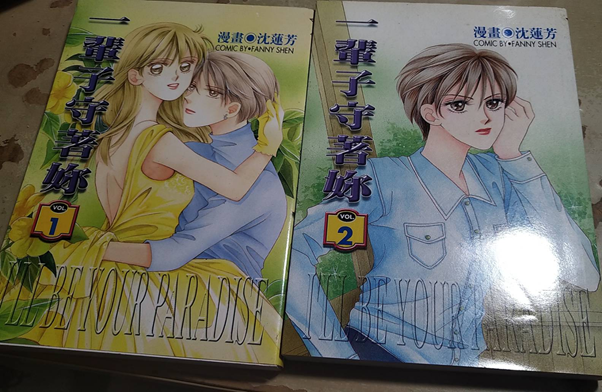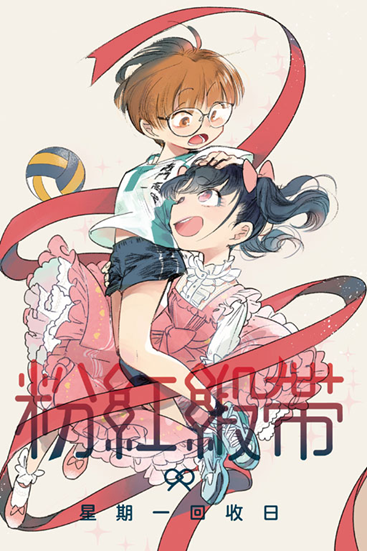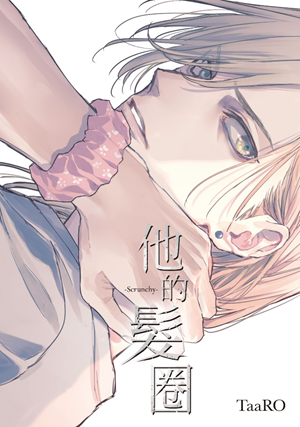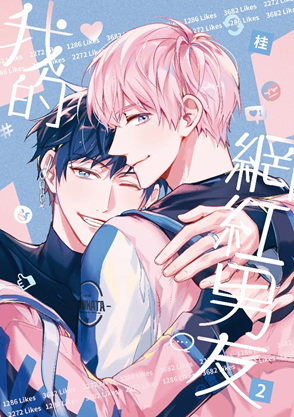In the early twenty-first century, digitalization impacted the global publishing industry. With the development of a wide variety of consumer electronics and digital entertainment media, comics are forced to break new ground by utilizing digital technology, social media, and interdisciplinary collaboration. In this period, Taiwan underwent the first democratic transfer of power from one political party to another; people were free from the thought control imposed by the previous regime, and artists had more creative freedom and choices of subject matters. For instance, instead of celebrating Chinese nationalism, comic artists paid attention to Taiwanese history, culture, religion, and custom. There were also comics criticizing political and social issues. Among them, those exploring gender issues have made some fruitful progress in recent years.
And by “fruitful progress,” I refer to the fact that, after years of effort, people in Taiwan have made more significant progress in recognizing gender equality than those from other countries in Asia. In 2004, the Gender Equity Education Act was enacted and gender equality became part of the curriculum of elementary and junior high schools in Taiwan. Students learn about equality between males and females and also respect for all sexual orientations and gender identities. As a result, young people in Taiwan are generally more aware of gender issues than people above the age of forty. Though it does not mean that gender discrimination has been eliminated in Taiwan (in fact, it still exists), younger and older generations do have significantly different views on gender issues.
The awareness of gender issues by the younger generations of Taiwanese is naturally reflected in their artistic creations, including comics. Among the titles nominated for the last few editions of the Golden Comic Awards organized by the Ministry of Culture, there were at least one or two every year dealing with gender issues such as girls’ love, boys’ love, and transgender issues. In addition, a portion of the translated foreign comics circulating in the Taiwan market, most of which are Japanese, covers themes such as boys’ love, girls’ love, gay, cross-dressing, and transgender identity. Comic fans also strive to express their preferences and fantasies about different gender identities in their self-published works.
In May 2019, Taiwan became the first country in Asia to legalize same-sex marriage. Although this marked a milestone for the gender equality movement in Taiwan, many Taiwanese still have prejudice or discrimination against homosexuals. Such discrimination was much more severe in Taiwan twenty or thirty years ago. In 1994, Taiwanese people were shocked to hear about the suicide of two students from the prestigious Taipei First Girls' High School. The two promising students planned to end their lives together by burning charcoal in a hotel room in Su’ao Township, Yilan County. From their suicide note, people suspected that they committed suicide because their love for each other was not accepted by society. Nevertheless, their school and parents denied such an allegation due to the stigma of homosexuality. After learning about this incident, comic artist Fanny Shen attempted to interpret their story and created Taiwan’s first-ever yuri (or lesbian) comic series, I’ll Be Your Paradise, published in 1997 and 1998.
In I’ll Be Your Paradise, the lead characters do not have the same ending as the two students. In this fictional story, one of the lead characters is saved from the brink of death and grows up to be a councilwoman who supports the feminist movement and witnesses the campaign to legalize same-sex marriage. Nowadays, when same-sex marriage is legal in Taiwan, readers may feel emotional and sigh like I did when rereading this scene. I felt emotional because we finally made it, and I sighed because there could have been fewer tragedies if it had happened sooner. (The Creative Comic Collection has made I’ll Be Your Paradise available again on their website.)

The yuri culture originated in 1970s Japan, when Barazoku, a gay men's magazine, began using the term yurizoku, meaning “lily tribe,” to refer to lesbians in a column titled “The Room of the Lily Tribe.” Yuri later became a genre of comics and animation focusing on intimate relationships between female characters. Over a few decades, Japan has developed a wide range of yuri novels, comics, and animated works. However, since the publication of the abovementioned I’ll Be Your Paradise (though it was not yet dubbed yuri), comics of this genre have not continued to appear in Taiwan until the twenty-first century. [1] Although there have been depictions of intimate relationships between females in doujinshi (self-published works by comic fans), larger yuri-themed doujinshi conventions were held only in the past few years, such as the Yuri Only Doujinshi Convention which has been held by Grand Journey since 2016. Regarding commercial publications, I should make mention of The Pink Ribbon, a title that garnered both Best Comic for Teenage Girls and Comic of the Year at the 2019 Golden Comic Awards.
Created by comic artist Monday Recover, The Pink Ribbon is a delight to read. The light and airy Lolita-style dresses, the adorable interactions between the two girls, the depiction of one character’s change of appearance and the change in her mind as well as the puppy love between the two girls, plus the comic artist’s flowing penwork—all make this comic book thoroughly enjoyable. This year, Monday Recover received Comic of the Year at the 2021 Golden Comic Awards again for her Fantastic Tales of Splendid Blossoms, for which she collaborated with yuri novelist Yang Shuang-tzu. This new work is set in Taichung during the Japanese colonial period when girls could attend girls’ schools but were still bound by traditional family values, and love between two girls was impossible. The integration of historical and fantastical elements into a yuri story adds cultural depth to this title.

Besides yuri comics, I must mention the BL (boys’ love) comics in Taiwan. Influenced by Japanese BL culture, many BL doujinshi appeared around 1990s Taiwan. Commercial BL publications have also increased in recent years. If we look at the titles recognized by the Golden Comic Awards, we will find Why Not?, the two-time winner of Best Comic for Girls, which details the male lead’s romantic feelings for his male best friend though it does not feature boys’ love in the main storyline. However, the 2017 winner of Best Comic for Girls, The Monster of Memory is a genuine BL comic featuring sci-fi elements and brotherly love.
Interestingly, The Monster of Memory was nominated for Best Comic for Girls at the Golden Comic Awards for its first issue, but its third and final issue was listed as R18 (restricted to individuals aged 18 years or above). As a member of the jury of the Golden Comic Awards that year, I cannot help but wonder if The Monster of Memory had been listed as R18 from the very beginning, it would have been in the Best Comic for Young Adults category, and the jury would have judged it by a completely different standard among other works. It is true that many BL comics listed as R18 are often categorized as comics for young adults and have to compete with works that are distinct from them. In 2020, the Golden Comic Awards employed a new system and has since stopped categorizing comics into comics for boys, girls, or young adults. This change makes the jury much more significant because which comics will be nominated or awarded now depend largelyl on the jury’s imagination of how much diversity should be represented in comics. Consequently, an unexpected title is listed among the fifteen nominees for Best Comic of the Year at the 2021 Golden Comic Awards: His Hair Tie by TaaRO, a BL title full of sexually explicit content even involving BDSM (bondage, discipline, dominance, submission, and sadomasochism).


And of course, I should not include only those nominated for the Golden Comic Awards. There are plenty of other Taiwanese BL comics that enjoy great success. For instance, My Online-Celebrity Boyfriend by Gui is not only popular online but is extending its popularity to Japan as Libre Publishing acquired the Japanese rights to this title. Veteran artists who are known for their comics for girls such as Huang Chia-li (or Kuang-hsia Chia), Nicky Lee, Yi Huan, and Mi-ssu-lin all published BL titles lately. Many amateur BL comic artists who were active in doujinshi conventions have also signed deals with commercial publishers. However, aspiring artists do not need a publisher to be known these days. They can promote their works and attract fans on online platforms. As long as their works are appealing enough, they can enjoy success and the support of a loyal fan base.
Some may wonder about the connection between the fictional BL or yuri comics and the gender equality movement happening in real life. A simple explanation is that women, as subjects of desire, are the target audience of yuri comics and a certain percentage of yuri fans are lesbians; even though BL comics depict romances between men, they are initially erotic works created by women for women. Therefore, both yuri and BL are cultural and social experiences for women. What’s more, BL movies and drama series are gaining more popularity in Asia and luring larger numbers of gay men into reading BL comics. There are also plenty who get to understand the situations of homosexuals and support the legalization of same-sex marriage after reading BL comics. [2] In the past, reading BL comics was something done in secret, but now people can openly discuss it. The reason behind this change is clearly related to the fact that Taiwan is becoming a society that respects gender diversity.
In addition to homosexual romance, Taiwanese comics also explore many other gender issues: Issue 5 of Big City, Little Things centers around a mixed-orientation marriage; Tan-Tsiu-Niu and Life Plan A and B examine a woman’s situation in society respectively in Qing-dynasty Taiwan and modern-day Taiwan; What She Put on the Table chronicles the lives of two women; Hysteria depicts a woman’s menstruation and sexual desire in a colorful fairytale; even T-Chan's Sexual Journey, a title that bluntly portrays a woman looking for hook-ups, are recently trending in Taiwan’s comic circle.
Exploring diverse themes such as women’s situation in society, workplace discrimination, marriage equality, the destigmatization of menstruation, and women's sexual liberation, a new generation of Taiwanese comic artists, especially female artists, are acutely aware of gender-related subjects. Motivated by either their own experiences or their concern for a sexual minority, they attempt to break away from their designated gender role and traits in a traditional patriarchal society and challenge heteronormativity. They regard women as sexual beings who explore their sexual orientation and identity and pursue physical and sexual pleasure. In recent years, these gender-related topics have been widely featured in Taiwanese comics, and to some extent, this phenomenon signifies the awakening of a new generation of Taiwanese women.
- [1] Yang Shuang-tzu, “Yuri is a Trend—The Development and Outlook of Yuri Culture in Taiwan from the Vantage Point of 2020,” the Creative Comic Collection, Aug 20, 2020
- [2] Wang Pei-ti, “BL Fans Who Quietly Support the Marriage Equality Movement,” Dong Hwa Journal of Humanities and Social Sciences, issue 13, 2017
Reference
anny Shen, I’ll Be Your Paradise (《一輩子守著你》)(1-2), Tong Li Publishing,1997-1998
Monday Recover, The Pink Ribbon (《粉紅緞帶》)(All), Tong Li Publishing, 2018
Monday Recover, Yang Shuang-tzu, Fantastic Tales of Splendid Blossoms (《綺譚花物語》)(All), Taiwan Tohan, 2020
Cory Ko, Why Not? (《有何不可》)(1-4), Sharp Point Publishing, 2015-
MAE, The Monster of Memory (《記憶的怪物》)(1-3), Tong Li Publishing, 2016-2019
TaaRO, His Hair Tie (《他的髮圈》)(All), Tong Li Publishing, 2020
Gui, My Online-Celebrity Boyfriend (《我的網紅男友》)(1-2), Tong Li Publishing, 2020-2021
HOM, Big City, Little Things (《大城小事》)(5), China Times Publishing, 2019
Nownow, Tan-Tsiu-Niu(《守娘》), Gaea Books, 2019
Shin Yan, Mag Hsu, Life Plan A and B(《荼靡》), PBC Music, 2016
Zuo Hsuan, Wen Yu-fang, Chang Ko-hsin, What She Put on the Table(《五味八珍的歲月》), PBC Music, 2017
Kan, Hysteria(《癔病童話》), Kiwifruit Studio, 2021
Guzi, T-Chan's Sexual Journey(《T子%%走》), Locus Publishing, 2021
About the Author
Wang Peiti holds a Ph.D. in sociology from the City University of New York. She was an adjunct assistant professor at National Chiao Tung University, National Central University, and National Taipei University of Education, where she taught about otaku culture, manga industry and culture, fan culture, media and gender studies. She was the editor of the Sociology of Animation and Comics book series and a jury member of the 2017 Golden Comic Awards organized by the Ministry of Culture. From 2018 to 2019, she served as the curator of the preliminary and opening exhibitions of Taiwan Comic Base, an initiative led by the Ministry of Culture. From 2019 to 2020, she was a of the upcoming National Comic Museum Planning Project. And since 2020, she has been a council member of the Cultural Studies Association. She is currently a Executive Officer of the National Comic Museum Preparatory Team at the National Museum of Taiwan History.




